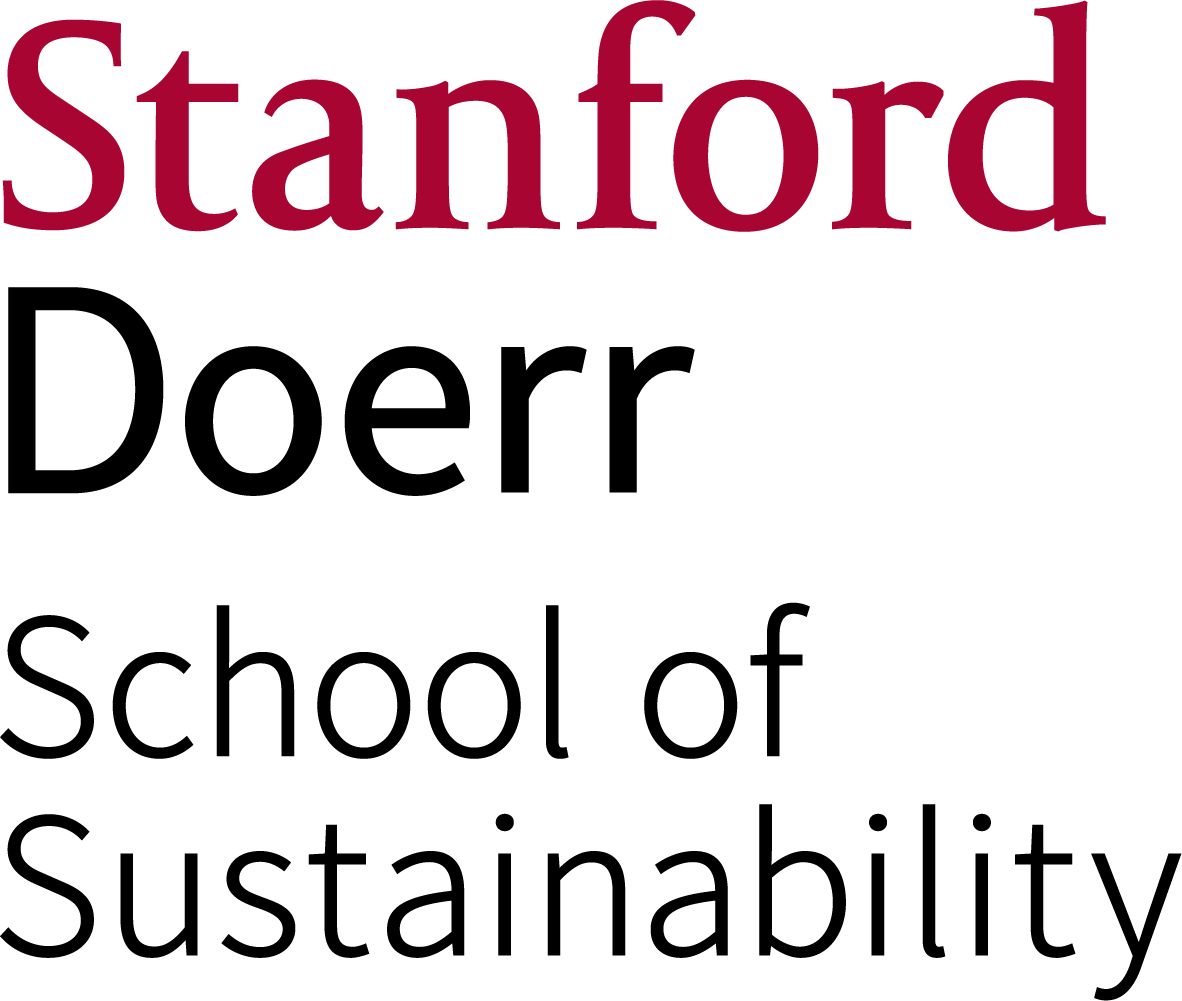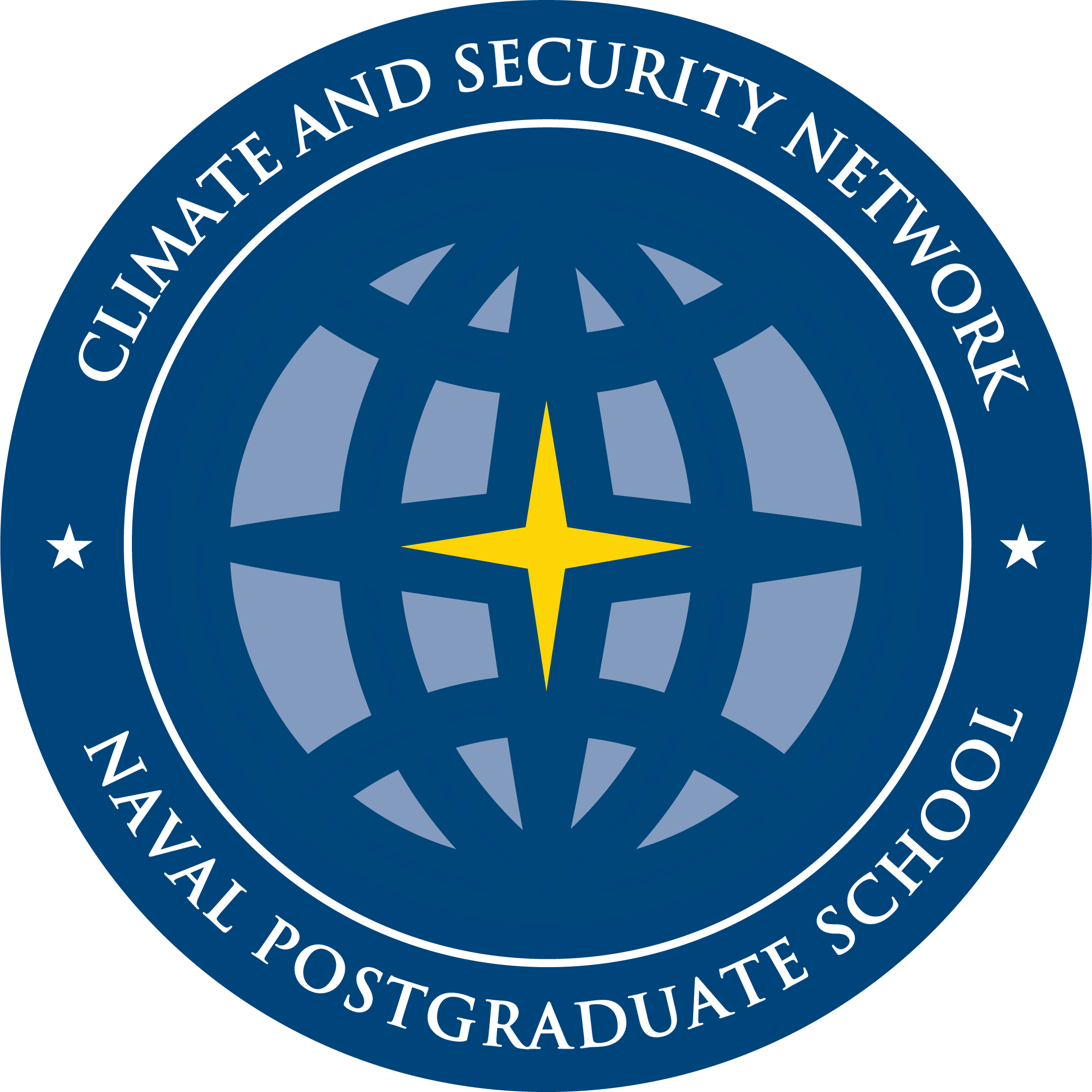Fellows - Climate and Security
NPS-Stanford Climate Security Fellowship
The Climate Security Fellows Program is designed to enrich graduate student experiences at NPS and Stanford by creating a space to learn about and discuss major issues in climate change, national security, and sustainability.
The program aligns with (1) the three bins of the NPS-Doerr partnership, which are energy security, ocean sciences, and climate security and sustainability, and (2) the priorities laid out in the Navy Climate Strategy. Faculty from NPS and Stanford will present related topics and hold interactive discussions on such topics as:
- Issues related to U.S. national security policy and climate change
- Military installations and surrounding communities impacted by climate change
- The nexus of environmental security, climate security, and energy
- Security and sustainability implications of climate-induced migration
- Private and public competition in Polar regions, specifically in the Arctic
- Other topics chosen by faculty as timely and relevant to climate security and participating curricula
The pilot year of the fellowship included 12 fellows from both institutions and ran November 2023 – May 2024.
Climate Security Fellowship_Recruitment (18 July 2024).pdf
For more information, contact:
Kristen Fletcher, NPS POC: kristen.fletcher@nps.edu
Mark McVay, Stanford POC: mcvaym@stanford.edu


Fellowship Documents
Agenda and Session Plan – 1 December 2023
Reading: UN Development Programme: What is climate security and why is it important?
Reading: IPCC Policy Summary (6th Assessment Report) (pages 3–11)
Reading: 5th National Climate Assessment Overview (pages 5–22)
Resource: Achieving Climate Security, U.S. Institute of Peace
Resource: 5th National Climate Assessment Report-in-Brief
Resource: NASA: Global Climate Change – Vital Signs of the Planet (Facts tab)
Agenda and Session Plan – 19 January 2024
Reading: IPCC AR6 Physical Science, North and Central America
Reading: IPCC AR6 Impacts, Adaptation and Vulnerability, North America
Reading: Resilience and disaster risk reduction: an etymological journey
Reading: Four concepts for resilience and the implications for the future of resilience engineering
Resource: National Climate Resilience Framework (The White House, Sept 2023)
Resource: Climate Resilience Portal (Center for Climate & Energy Solutions)
Agenda and Session Plan – 1 March 2024
Reading: Yale Program on Climate Change Communication
- Global Warming’s Six Americas (overview)
- Global Warming’s Six Americas, Fall 2023 (update)
Reading: Grist: Talking about climate change can be awkward. Just as Tim Robinson (16 February 2024)
Reading: National Geographic: Have we been talking about climate change all wrong? (9 February 2024)
Reading: BBC: Electric Cars: Lords urge action on ‘misinformation’ in press (5 February 2024)
Viewing: Ted Talk by Marshall Sheperd: Slaying the “zombies” of climate science (2014)
Resource: Yale Program on Climate Change Communication: Climate Change in the American Mind: Politics & Policy (Fall 2023)
Resource: Center for Countering Digital Hate: The New Climate Denial (2024)
Resource: Combined Naval Address (hosted by NPS): Extreme Weather-Climate Change Connections: Perspectives on science, vulnerability, and the message (2022)
Resource: Climate Change Videos by Dan Linehan (2021)
- Unnatural Climate: Our Atmosphere is Thin not Infinite (2:16)
- Unnatural Climate: Atmospheric Problems Identified and Solved (1:53)
- Unnatural Climate: Climate Trends Obey the Laws of Physics (1:47)
- Unnatural Climate: Understanding When Cycles are Natural or Not (3:41)
- From Ice to Fire: Wilder, Deadlier, and More Frequent Fires (2:30)
- Science Communications: Penguins, Penguins, and More Penguins (1:50)
- Science Communications: Diversify and Improve Communications (4:06)
- Science Communications: Communication Strategies for Solutions (6:50)
- Science Communications: Countering Denial (2:36)
- Science Communications: Climate Change and National Security (2:44)
Agenda and Session Plan – 15 March 2024
Reading: Companies Flock to Biden’s Climate Tax Breaks, Driving Up Cost, NY Times, 3 May 2023
Reading: How the U.S. Made Progress on Climate Change Without Ever Passing a Bill, The Atlantic, 16 June 2021
Resource: Financial Markets and Climate Transition: Opportunities, Challenges and Policy Implications (Organization for Economic Co-operation and Development, 2021)
Resource: Fact Sheet: The Impact of Climate Change on American Household Finances (U.S. Department of the Treasury, 2023)
Resource: Country Climate and Development Reports (CCDRs) (The World Bank)
Resource: Climate and Development: An Agenda for Action (The World Bank, 2022)
Agenda and Session Plan – 5 April 2024
Reading: The concept of risk in the IPCC Sixth Assessment Report: A summary of cross-working group discussions. Intergovernmental Panel on Climate Change (2020).
Resource: Fifth National Climate Assessment Overview (Section on Current and Future Climate Risks, pp 23-36)
Resource: Weathering Risk: Climate Security Risk Assessment Methodology - Guide and Tools (pp 9-13)
Agenda and Session Plan – 3 May 2024
Reading: Putting a number on hunger, Food and Agriculture Organization of the United Nations
Reading: The 5 Phases of Food Security, United Nations (2024 video)
Reading: Food Systems must be rewired to halt escalating hunger and soften climate impacts, Relief Web
Resource: The Blue Food Assessment
Resource: The State of Food Security and Nutrition in the World (2023 report)
Resource: State of Food Security and Nutrition in the World 2023 (video)
Resource: Climate Change, Global Food Security, and the U.S. Food System, NCAR/UCAR (2016 video)
Resource: The science of food security, Nature (2018)
Resource: Strengthening Food Security in the Force: Building on Our Progress, Under Secretary of Defense for Personnel and Readiness (2023)
Resource: Rethinking Food (2023 Documentary/WaterBear)

